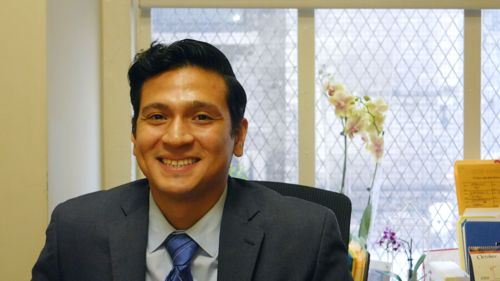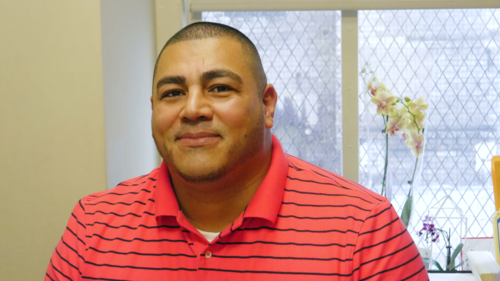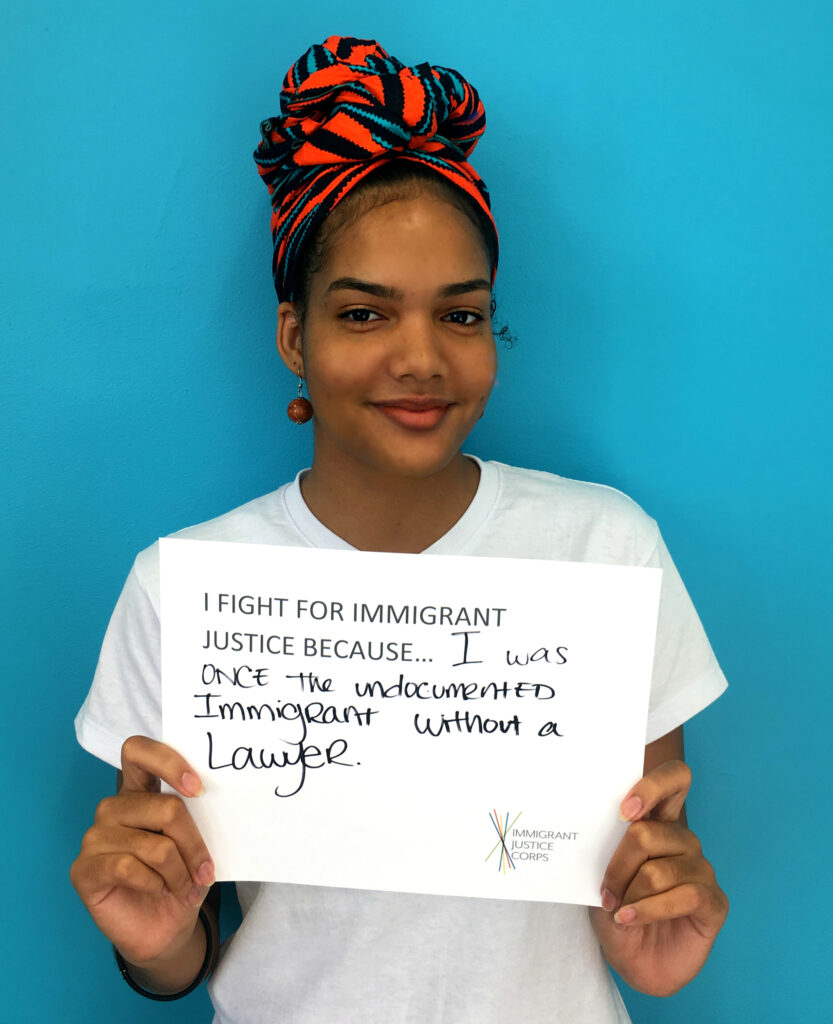“You can say happy, but that word isn’t enough.”
José Miranda, a second year Justice Fellow assigned to Catholic Migration Services in Brooklyn, will always remember his first clients – a family from Nicaragua.
Camilo and his family went to Catholic Migration Services in the fall of 2018 seeking immigration assistance just as José was starting his fellowship. “Camilo was actually the first intake I did on my own as a Fellow,” José said. Another first was the fact that Camilo and his family were assigned to the “FAMU” docket.
“I remember writing to my IJC colleagues asking, ‘Does anyone know what FAMU is?’”. It turns out that FAMU is an acronym for “family unit”.
The FAMU docket was introduced last year by the Department of Justice in ten jurisdictions, including New York, and prioritizes the adjudication of parents with children deportation cases in immigration court. Under the guise of “judicial efficiency,” these cases are fast-tracked. But in reality, the policy is designed to undermine due process, deny a fair hearing and deport families seeking asylum as quickly as possible.

FAMU cases are required to be completed within a year of being scheduled in court. Most merit hearings for families on the FAMU docket are scheduled two to three months after a family’s first appearance in court. With no right to appointed counsel, many of these families are unable to find free legal assistance and are forced to represent themselves. A majority of families do not speak English, do not understand the notoriously complex immigration process, and cannot navigate removal proceedings on their own.
A Dangerous Journey
Camilo, his wife, and two children arrived at the U.S. southern border in August of 2018 seeking safety and protection. In Nicaragua, Camilo and his wife both owned their businesses and he was enrolled in law school. The family lived a normal life until the anti-Sandinista student protests started gaining momentum around April 2018.
Camilo’s family was targeted by the Frente Sandinista Libercion National (FSLN) who wanted to use their home as a shelter for confrontations with protesters and as a place to store weapons. The family refused and death threats against their lives steadily increased. After a near kidnapping of their son, the family fled Nicaragua and journeyed to the US. border seeking asylum.
It was a harrowing journey. “I don’t know if I can compare Mexico to Iraq. But in Mexico life doesn’t cost much,” said Camilo. While traveling on a bus through Mexico, they were twice pulled over by men with guns who demanded money and threatened to kill them if they did not comply.
Once they reached the U.S., Camilo and his family were detained in a privately-run detention center in Texas for six days. “People there didn’t give you good treatment. People come with trauma because Mexico is dangerous. They come running here to the U.S. with hope to have opportunity.” But instead of offering help, Camilo said the officials he encountered stoked fear. “They kill all your hope. They told me that as soon as I go to New York that I will be deported. They kept telling people this, so these people get scared and don’t show up to court.”
After passing their credible fear hearing, Camilo and his family were released and headed to New York. After learning about several free immigration legal service providers, they found their way to Catholic Migration Services and José’s office.
José and his co-counsel accompanied the family to their first preliminary hearing in immigration court. When the immigration judge offered a final merits date in three months, José advocated zealously for additional time to properly prepare the case for a hearing. The judge relented and set the final hearing at five months.
Despite having an expedited case, José was hopeful. “Camilo is probably the most prepared client I’ve ever had,” he said, “He came with so much evidence.”
Because of his legal training, Camilo knew the importance of keeping records. “Before we left Nicaragua I tried to gather as much as I could,” he said. “I didn’t know if I would have to show the judge at the border or later on. I was in law school, so I was studying about the law. I brought whatever I had.”
José said most people don’t realize that something as basic as photo ID, bills, evidence of being in school, complaints filed – are all critical to asylum applications. “Camilo had all of those things. It was our job to put all the documents together to support a cohesive narrative and translate them into English.”
“Now we have freedom.”
After four prep sessions and a three-hour hearing, the immigration judge granted Camilo and his family political asylum in August 2019.
When he heard the decision, Camilo said he felt like he was “born again” in the U.S. “It’s another chance for me and my family and I was so emotional, and you can say happy but that word isn’t enough.”

It was also a memorable day for José Miranda. “It was the first court decision of my IJC fellowship,” he said. “I felt lucky the whole time because I had so much support from another attorney, a supervisor and the best client you could ask for.”
Camilo and his family are looking forward to taking English classes and he’s thinking about going back to law school or working in IT. “I like to help people. With the law in your hand you have power. Knowledge is power,” he said.
“Now we don’t have to feel worried about being followed. Back home it was terrible. You couldn’t sleep or go out. It was like hiding. Now we have freedom.”
